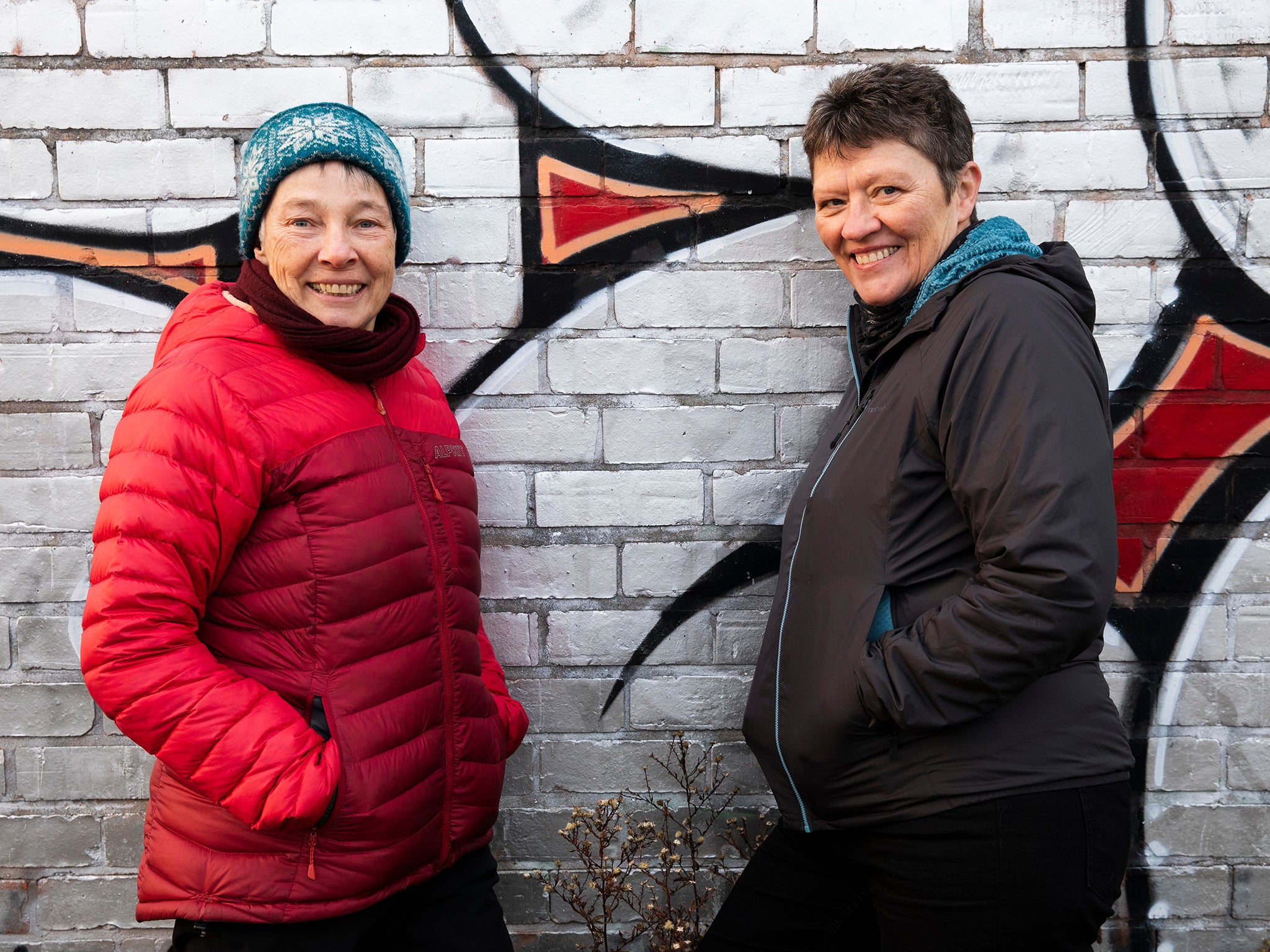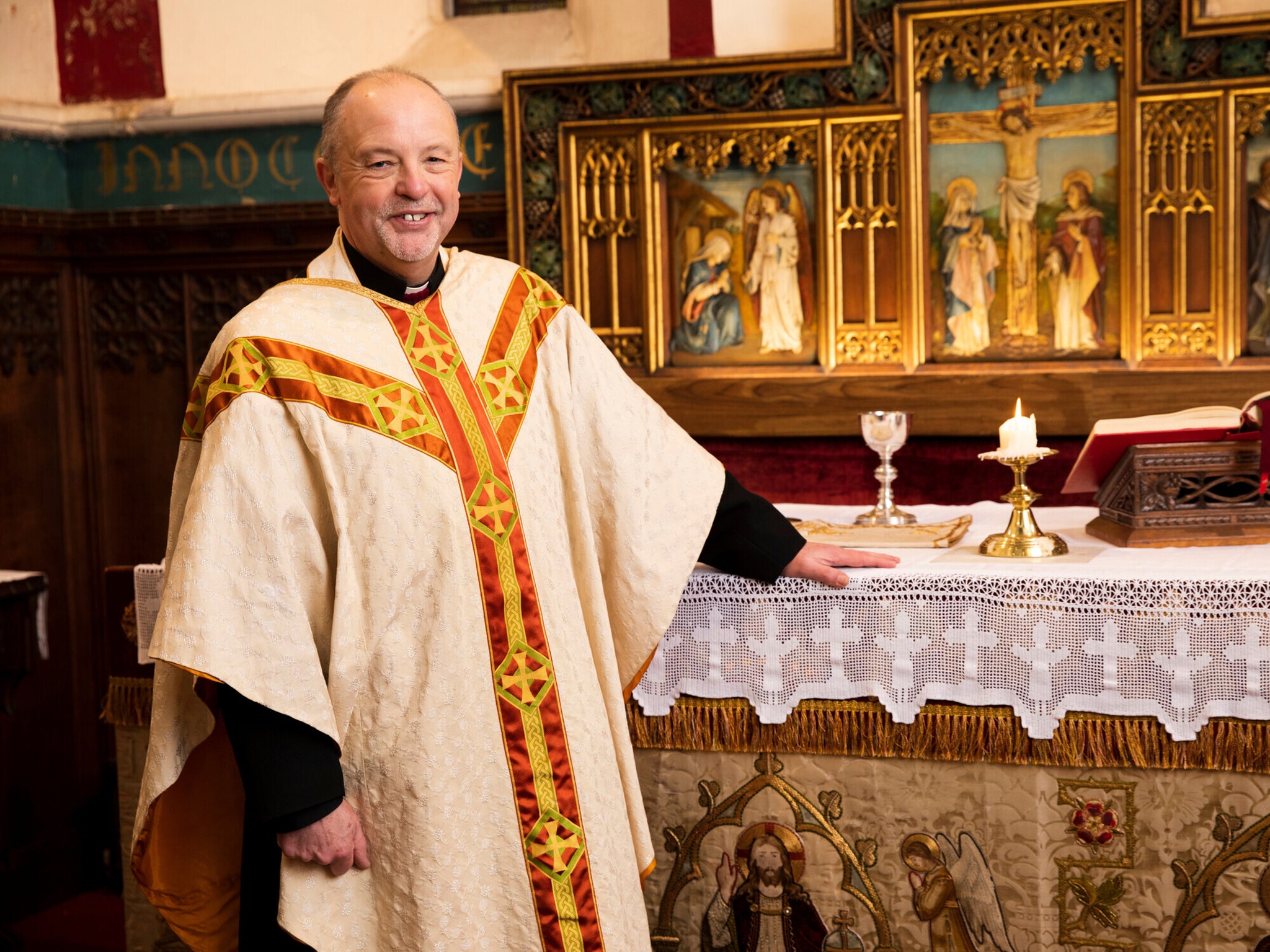
When Patrick, a 73-year-old gay man from Manchester, worked as a teacher in a Catholic school in the late Eighties, he was confronted daily by the homophobia of the era. “We were sent videos to try and educate pupils about Aids,” he remembers. “I witnessed our head of PSHE opening up the package containing [the tapes] and throwing it in the bin in disgust. ‘We don’t have people like this in our school,’ she said. ‘We don’t have gay people’.”
For many young queer people, such an attitude might be unthinkable, but for the majority of older LGBT+ people, prejudice, fear and hostility was part and parcel of everyday life. New legislation, greater awareness and improved representation mean things have moved on – albeit slowly – since the dark days of the 20th century. While this doesn’t mean we can rest on our laurels – rampant transphobia in almost all areas of life remains a critical rallying point for those invested in queer liberation, and there’s no disputing the continued existence of misogyny and racism – we also can’t deny that LGBT+ rights have come a long way in the past 40 years.
Patrick is one of four LGBT+ people I spoke with about their experiences as “gay veterans”. As well as reflecting on the past, we discussed the challenges that still exist for queer people, both young and old. A dearth of positive representation of older LGBT+ people has led to everyone involved in this story participating in the Centre for Ageing Better’s image library, a collection of more than 1,500 positive and realistic images of people aged 50 and above. Free and accessible to all, the image bank has now been nominated for a prestigious Charity Award.
David, 59, is a reverend and activist from Manchester and the chair of Oldham Pride. “I was always told on the gay scene that once you’re past 24, you’re over the hill,” he tells me. “That was thanks to things like Boyz magazine, with all their body-beautiful images.” Such pressure to conform to restrictive bodily standards, or accepted appearances, still has resonance across the LGBT+ community. Venerating slimness or policing whether, how and when a person wears make-up can contribute to a lack of acceptance that many people in the community still struggle with. Discriminatory attitudes – both in and outside of the LGBT+ umbrella – also augment poorer mental health outcomes for LGBT+ people; a 2018 Stonewall report found that half of LGBT people polled had experienced depression in the previous year.
In the Eighties, such discrimination was enshrined in law, however. Section 28, the government act passed in 1988 that prohibited local authorities and schools from “promoting the teaching of the acceptability of homosexuality”, had a profound impact on Patrick. He’d been married to a woman for 15 years before coming out at the age of 40, leading his wife to “refuse to talk about it and [give] me three days to tell my children and leave”. Then, once he was seen out with his boyfriend, he was outed at work. “I was interrogated by the headteacher, the parish priest and the full board of governors, and they made me redundant,” he says. “They got me out on ‘economic budgeting grounds’, but I knew the real reason. Section 28 changed my life.”
Liz, from Manchester, was just 13 when her mother discovered she was a lesbian – and promptly took her to a psychiatrist. “Crazy,” says the now 61-year-old. “She denies it, but that’s kind of what we put up with.” Liz’s partner, 67-year-old Jo, also had a difficult time coming to terms with her sexuality as a young person. “I think I spent all my teenage years until I was 18 in total denial,” she says. “I was so relieved when I found out that it was ‘normal’ to have a passion for girls, to have a crush. It was a very lonely, isolated time, with some terrible attitudes. It took a lot of bravery to come out.” This was compounded in the early Eighties, too, upon the advent of Aids. “I was going to have children with my gay friend in Leicestershire and he died of Aids,” Liz remembers. “At that period, I went to so many funerals – I lost so many male gay friends.”
I don’t know where the years have gone. In my head, I’m still 33 rather than 73
Same-sex relations between men may have been decriminalised in 1967 for those aged 21 and above (there was no equivalent law for women), but public perceptions of LGBT+ people were at rock bottom. Equal rights were a foreign concept. It wasn’t until 1992 that the World Health Organisation declassified same-sex attraction as a mental illness and, incredibly, consensual same-sex relations between men was only permitted for those aged 16 and above from the year 2000 (this was previously set at 18). That was also the same year that the ban on LGBT people serving in the army was lifted. For older LGBT+ people, such experiences shaped their lives.
When it comes to the evolution of queer rights, David is reflective. “LGBT people are sometimes still seen as ‘mad, bad and sad’,” he says. “The church often has a big hand in that in terms of condemning people. So I’m trying to set the record straight.” He is thankful for the activists who have fought for equality. “I’m grateful to the predecessors who’ve had the courage to stick out their necks and been ostracised and even imprisoned because of who they are. People like [human rights campaigner] Peter Tatchell and [Stonewall founder and LGBT+ activist] Michael Cashman have been role models for me in terms of speaking truth to power and confronting injustice, not just in this country, but also overseas.”
Patrick agrees. “I would not have been able to lead the life I’ve led if it were not for those who came before,” he says. “I think it’s important that younger people understand that the freedom they have today is because of LGBT+ people who put their lives on the line.”

For Jo, the introduction of equalities legislation designed to protect LGBT+ people has been paramount. She cites early equal opportunities policies developed at Manchester City Council, where she used to work, along with hate crime legislation and the 2010 Equality Act. “I used to think it wasn’t worth anything because it’s ‘the establishment’ and all that, but having those legal protections is actually really important,” she says. “In the Seventies, Manchester’s chief of police, James Anderson, said that gay men ‘had it coming to them’ and that people with Aids were ‘in a cesspit of their making’. We’ve gone from being condemned to hell by the most senior police officer in the district to the police developing a concept of hate crime. Once upon a time, you would never, ever go to the police about anything that revealed your sexuality, whereas we feel more supported now. I know the police are in a lot of trouble for not getting it right at the moment, but I don’t want to underestimate the ways that [hate crime legislation] has made us feel safer.”
In terms of the current status of LGBT+ rights, Patrick and David both feel that there is still work to be done. “The pendulum always swings backwards and forwards; we can never be complacent, even in the UK,” says David. For Patrick, transphobia is a major concern. “I think the recent murder of Brianna Ghey has brought home to a lot of younger people that there is still a fight to be had,” he says. He adds that a trans friend of his was “set on” by three teenagers coming home on the bus last week. “For what?” he despairs. “We’re not at the end of the road yet.” He calls on all members of the LGBT+ community to be “as inclusive and tolerant as possible”.
When I came out as a teenager, my mum would say to me, ‘You’ll grow up to be an old, lonely man’. But the opposite is true
Societal intolerance extends to every aspect of a person’s life – and for older LGBT+ people in a community that often valorises youth, ageism can be rife. Additional and specific challenges faced by this group tend to be amplified for ethnic minority LGBT+ people, those with a disability, refugees or people within other marginalised groups. During our conversations, several issues came up with regularity: a lack of specialist services for LGBTQ+ communities, concerns about housing and older life care, and fears about having to go back in the closet at vulnerable points in their lives.
Liz remembers looking after her dad’s cousin, a gay man, after he went into residential care later in life. “Every time I visited, the photograph of his partner of 40 years had been put away in a drawer,” she recalls. “I used to get it back out.” Contending with discriminatory attitudes is a very real concern for older LGBT+ people thinking about their later years. “I refuse to go into a place where I have to go back in the closet,” Patrick says. “If I end up having to access care, I want it to be in a place where staff are supportive, they’ve been educated, and people can be themselves.”
And when it comes to their status as “elder gays”, all are united in their enthusiasm for later life. “It’s ironic,” David says. “Some of the young people I know have got little energy, and yet some of the older people I know… they might be 70 [or] 80 but they feel like they’re 25 inside. Their energy and enthusiasm for life is really endearing and stimulating.”

Patrick adds that he has become “more accepting and understanding” of differences as he’s gotten older. “I don’t know where the years have gone,” he says. “In my head, I’m still 33 rather than 73. And that’s partly because I’m active. I’ve got a positive attitude to life. And thankfully, I’ve got reasonably good health.”
The experience of growing up during a hostile period for LGBT+ people gives Liz and Jo an insight into the challenges facing young people today, they say. “We’re here for you,” says Liz. “We’re mother hens. We will adopt you if you need it, even in your thirties!” She says that it is imperative to accept people for “whoever they are, whatever they are,” adding: “We’re still evolving as well. We’re not stuck-in-our ways old farts.”
“Age is just a number,” says David. “When I came out as a teenager, my mum would say to me, ‘Oh, nobody will ever like you. You’ll grow up to be an old, lonely man’. But the opposite is true. I’ve got so many friends. And the older I get, the more attention I get – in all sorts of ways! I just love it. Embrace life and learn from other people’s experiences.”







